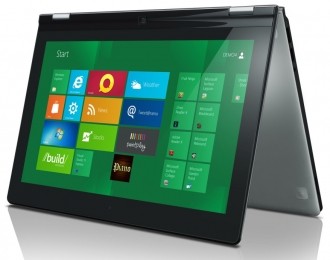One of the biggest gripes that longtime Windows users have with the upcoming OS release is Microsoft's decision to pull the classic Start menu to make way for a new Metro start screen. Many have called out the company for forcing what they claim is a touch-friendly interface optimized for tablets on desktop users, worried that productivity might suffer as a result.
But Microsoft believes the Start button had actually fallen out of favor with users of Windows 7 already and that presented the opportunity to do something new.
Speaking to PC Pro, Chaitanya Sareen, principal program manager at Microsoft, explained that telemetry data was a big part of the decision. Apparently Start menu usage was dropping as more people favored pinning their most used applications on the Windows 7 taskbar.
"We saw the Start menu usage dramatically dropping, and that gave us an option. We're saying, 'look, Start menu usage is dropping, what can we do about it? What can we do with the Start menu to revive it, to give it some new identity, give it some new power?'"
"So I'm a desktop user, I pin the browser, Explorer, whatever my apps are. I don't go the Start menu as often. If you're going to the Start screen now, we're going to unlock a whole new set of scenarios, or you can choose not to go there, stay in the desktop, and it's still fast."
Sareen also dismissed criticism that the Metro interface is better suited for touchscreen devices, highlighting the option to search for applications simply by starting to type its name on the Metro Start screen using a keyboard, and mentioning how laptops should get updated touchpad drivers to improve gesture controls.
